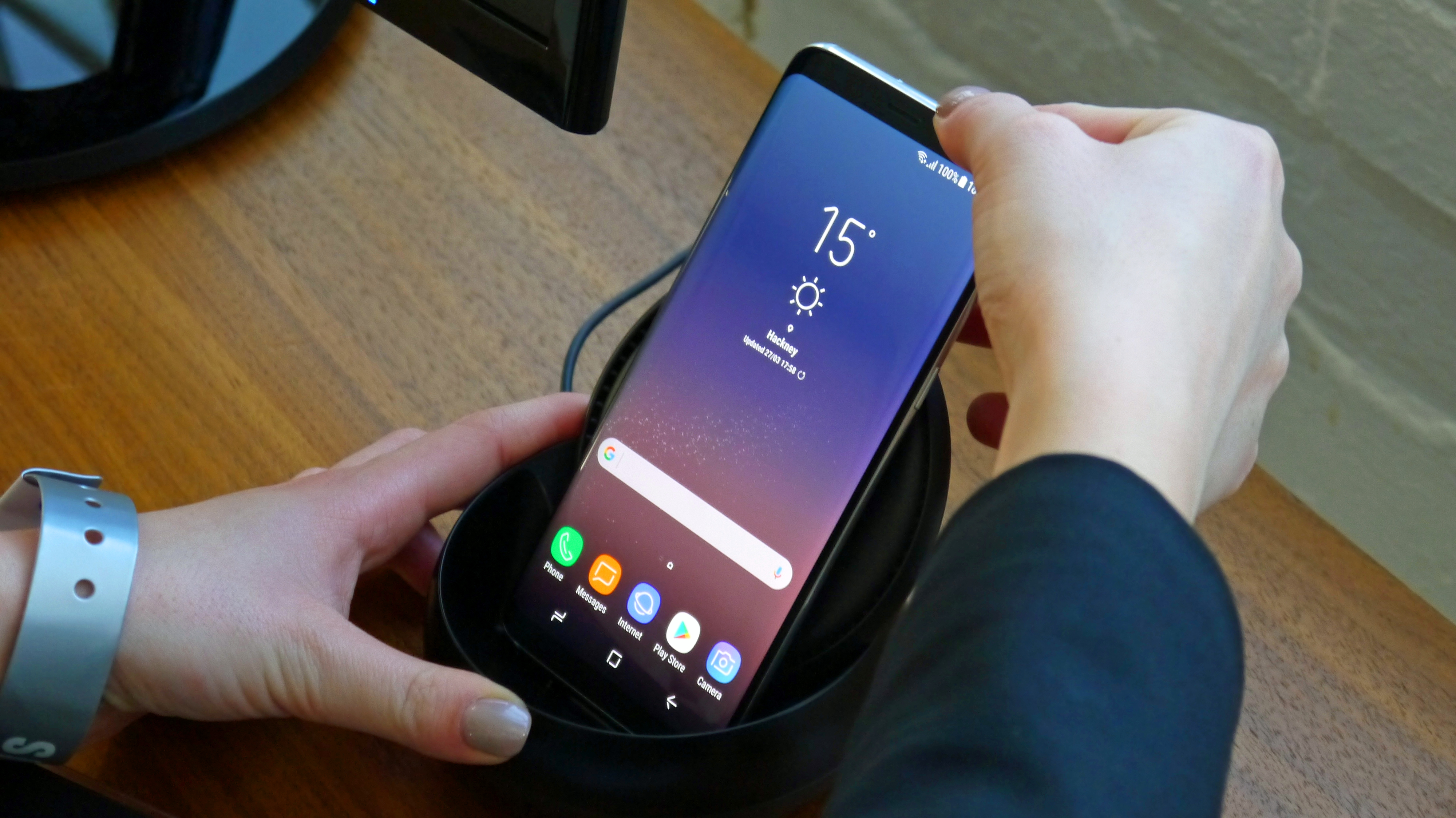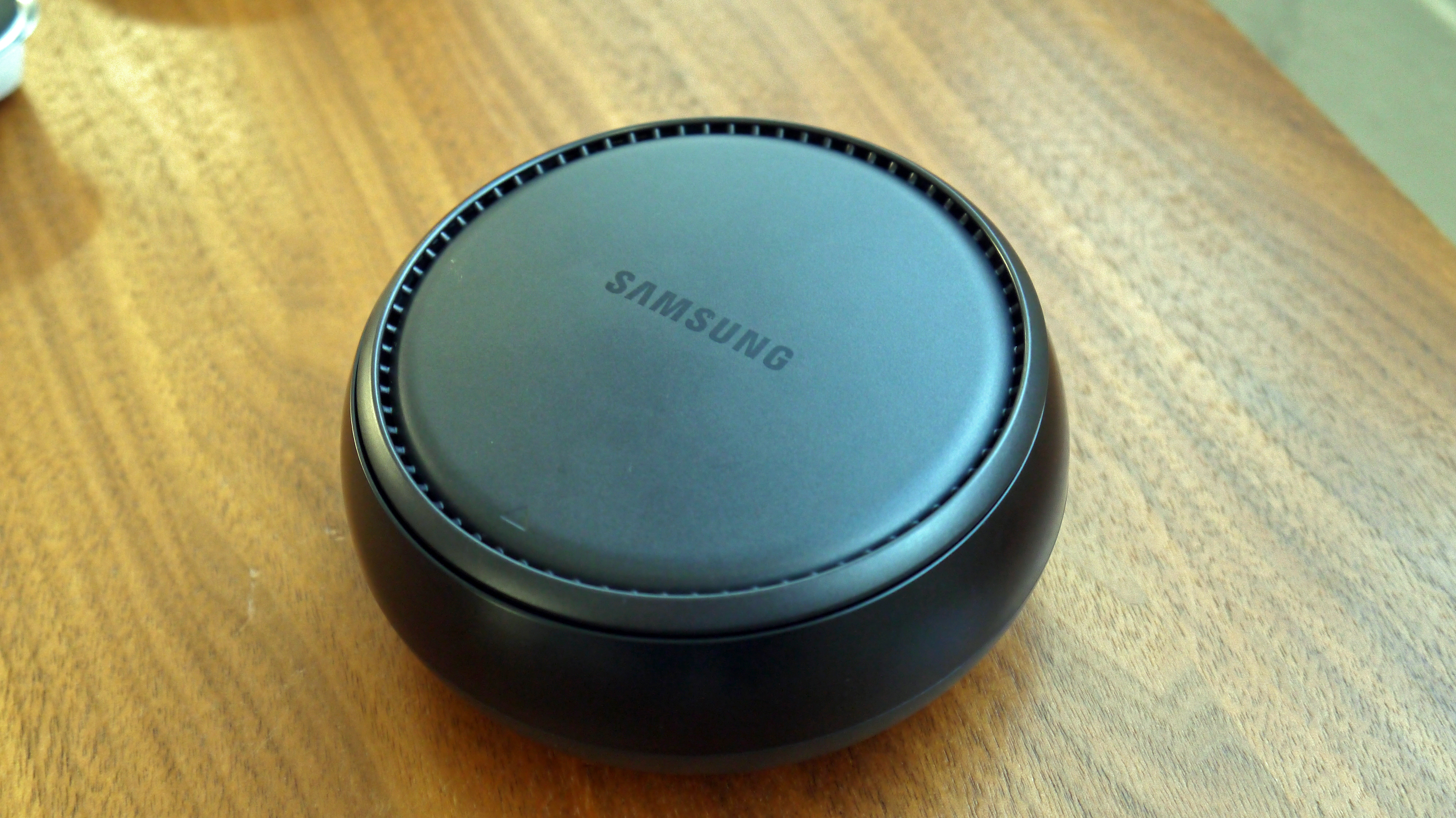Samsung’s Dex dock turns the Galaxy S8 into a competent desktop
Dex makes an Android PC out your new S8

The Samsung Galaxy S8 is, for now, the most powerful phone in the world. And, with all that Snapdragon 835 or Exynos 8895 (outside the US) juice, Samsung is putting it to clever use with Dex.
Dex is a circular dock add-on that essentially turns your S8 and S8+ into a desktop PC that's fluent in Android (as expected) and, more unexpectedly, Windows 10, by means of cloud virtualization via Citrix or VMware.
Got a mouse, keyboard and monitor? That’s all you need to get started with Dex. Once connected, the S8 continues to receive notifications and phone calls like it usually does, except it’s all done within a customized version of Android that looks nothing like it does on the phone – complete with mouse cursor and proper, window-based multitasking.
For $149 (we're still waiting on global costs and availability), Dex is something to point to if you were to claim the S8 is Samsung's most versatile phone yet.
- The Surface Pro 4 can replace your desktop without a dock

Features on deck
You might be wondering why Samsung is leaning so heavily into the computing space with the S8. Its answer would certainly be “why not?”
While large screens and S-Pen support has historically made the Samsung Galaxy Note series a better choice for executing productivity tasks, the S8’s winning feature, aside from housing a larger screen than any Note device in existence, is power.
Samsung harnesses it to push a totally different user interface than what is seen on the S8. From a distance, what Dex pushes looks a lot like Windows 10 and anyone familiar with a modern computing operating system will feel at home here.
Sign up for breaking news, reviews, opinion, top tech deals, and more.
Apps can be made into desktop icons and once opened, the windows can be displayed side-by-side and minimized, to boot. How much of the Google Play Store will be compatible with Dex remains to be seen, but Samsung is touting its early supporters, Microsoft and Adobe, that will soon be bringing big-hitters like PowerPoint, Word, Excel, and Lightroom, respectively, to Dex.

The W10 Mobile comparison we have to make
If Android isn’t doing it for you, users can thankfully opt for Windows 10 by way of cloud-based virtualization through a service offered by both Citrix and VMware.
Samsung’s custom desktop interface never truly goes away, and the experience seems better for it, as phone calls and all other applications can overlay atop Windows. That way, you never miss a beat.
While we’re on the topic of docking your smartphone to unleash desktop-like powers, you might recall that phones with Microsoft’s Windows 10 Mobile offer a similar feature via Continuum. But, with each phone released on the platform being bogged down by the lousy app selection on the Windows Store, the innovative idea hasn’t really seen full bloom.
Now, in its first try, Samsung has met and perhaps even exceed Microsoft’s claim to fame on the hyper-mobile computing side. Of course, we’ll have to wait to see how the virtualization pricing turns out, but Dex makes it clear that Samsung’s ambitions with the S8 are far broader than just a phone.
- ...Or just take a Chromebook for a spin

Cameron is a writer at The Verge, focused on reviews, deals coverage, and news. He wrote for magazines and websites such as The Verge, TechRadar, Practical Photoshop, Polygon, Eater and Al Bawaba.